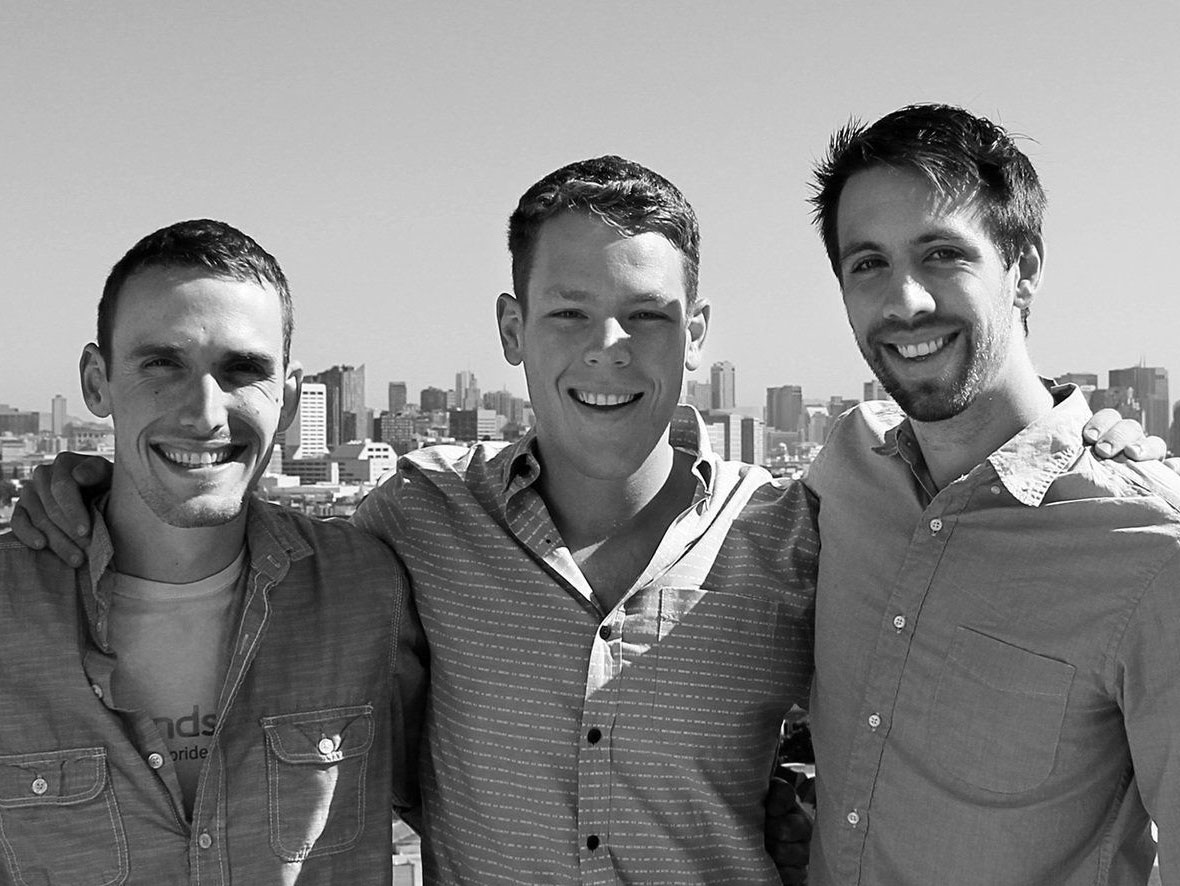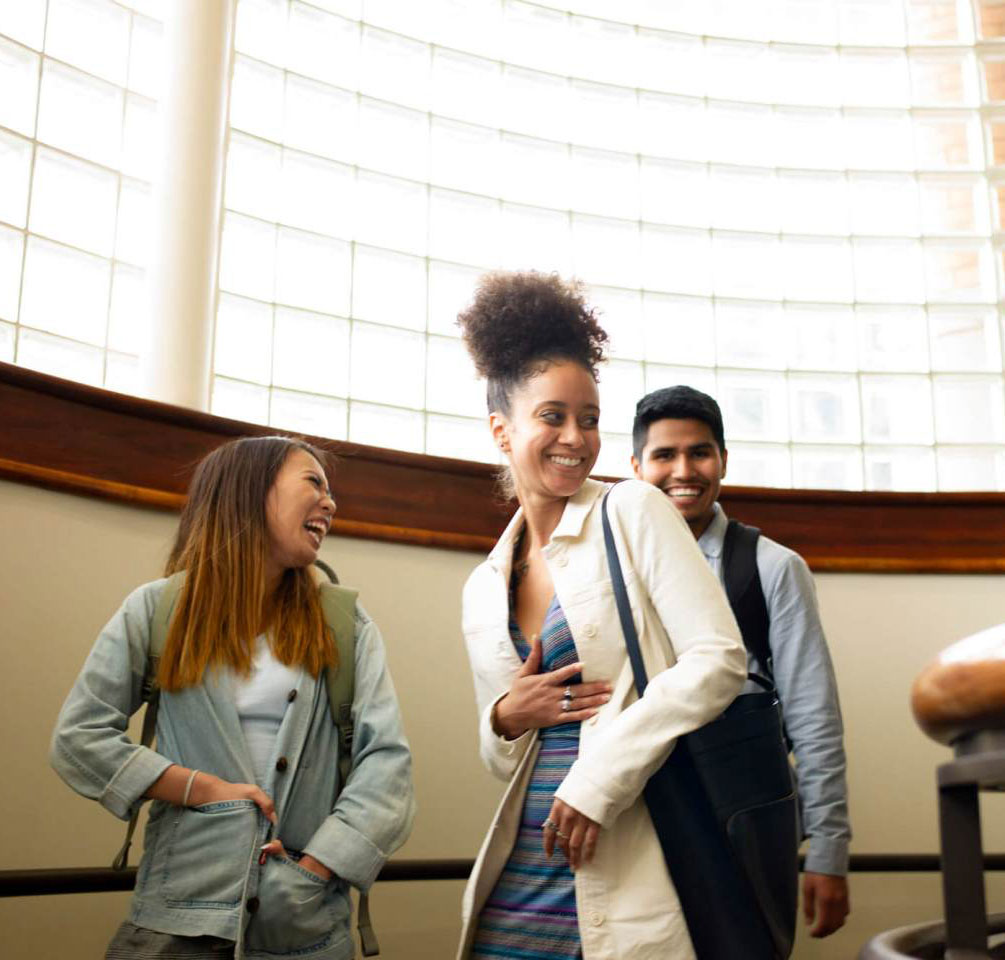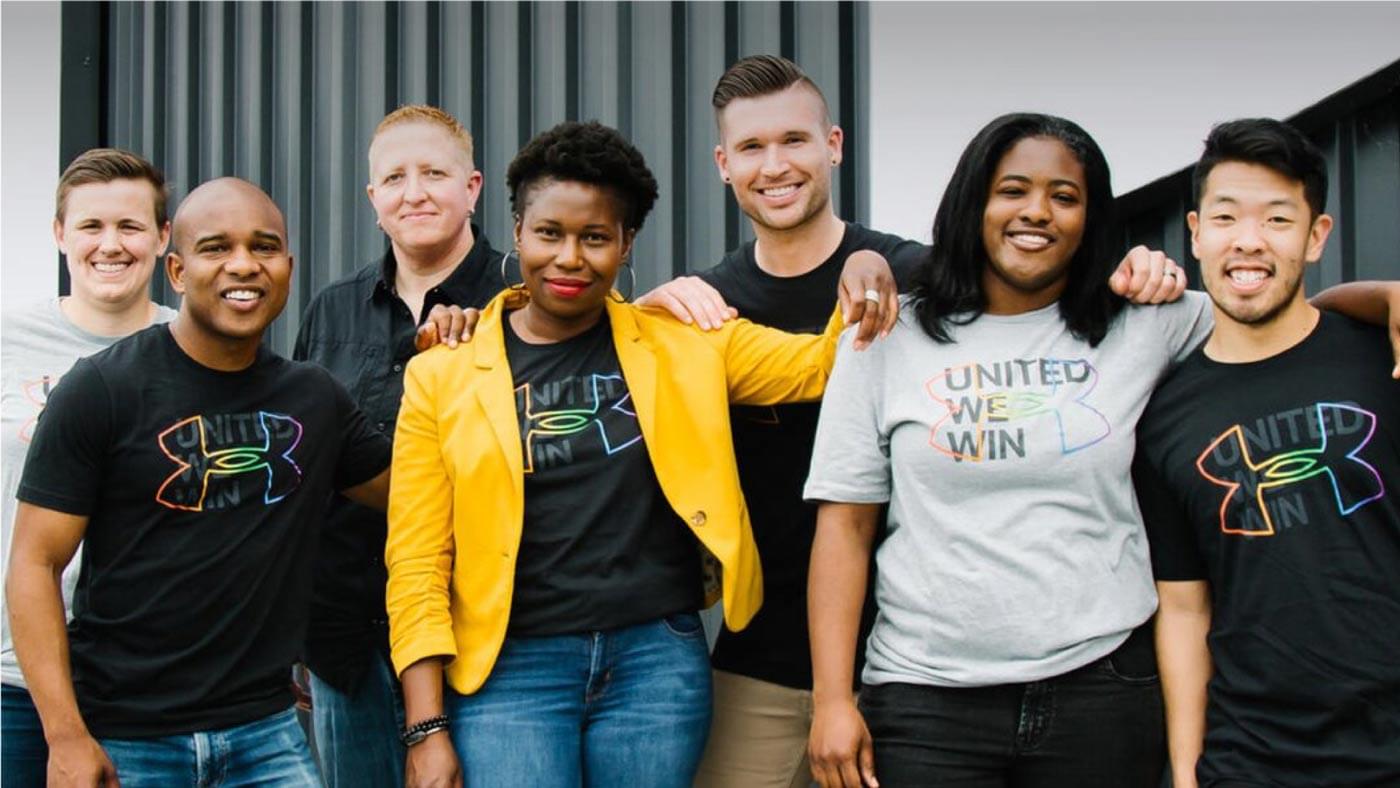
Founders
Ben Christensen
Garrett Lord
Scott Ringwelski
Moving the Needle on Inequality

For Handshake, much of the story of its early days took place in a car: A used, blue 2012 Ford Focus that had been in two rollover accidents. But it got good gas mileage, and as the startup was first getting off the ground in 2014, it was an office and home on wheels for co-founders Garrett Lord and Ben Christensen.
The two drove it 20,000 miles in a grueling multi-state campaign to sign their first batch of customers. They slept, kind of, parked in McDonald’s parking lots, because they tended to be well-lit and there was free WiFi. During the day, they’d struggle not to talk over each other during parallel business calls. And so it went, for six months.

Garrett, Ben and Scott would build Handshake into a thriving business that in less than a decade has fundamentally changed the way that college students — more than 13 million of them so far — seek their first job out of school. It has also become the preferred method for 750,000 employers, including all of the Fortune 500, to reach, find and recruit new graduates. And more than 1,400 college and university partners in career centers all over the country use the Handshake network students and employers together.
The foundational idea behind Handshake was simple: talent is evenly distributed but opportunity is not. A student’s career prospects shouldn’t be determined by who they know or where they go to school. The existing model of early talent recruiting meant most companies only recruited from a small set of core schools, often elite institutions attended by their executives and local universities near their headquarters. Students across the country were missing out on opportunities and companies were missing out on their talents. What was needed was a better way to bring them together.
Garrett had proven the point by being a rare exception. Despite his school’s rural location, he landed internships in tech that put him on the path of starting Handshake. Yet he and his co-founders knew of countless examples of gifted unemployed and under-employed graduates. And they weren’t just at Michigan Tech. They were everywhere.
It was, Garrett concluded, a problem that presented a monumental business opportunity. “I wanted to start a company that would democratize access to jobs,” he says. “That was the vision.”

Garrett grew up in Bloomfield Hills, a quiet suburb about 35 minutes north of Detroit. After high school, money was tight, so he spent two years at a community college before enrolling in 2010 at Michigan Tech on Michigan’s Upper Peninsula. To help pay the bills he ran a PC repair business, and occasionally turned to dumpster diving on campus for free computer parts.
During one such excursion he made a friend who suggested he apply for a summer internship at the Los Alamos National Laboratory in New Mexico, one of the US Department of Energy’s research hubs. He got it, and the following summer, after a persistent campaign of emails, landed another coveted internship at the Washington D.C. offices of the analytics company Palantir Technologies.

Garrett tapped computer science classmates Ben and Scott, and they started to build their platform and research the market. From the start, they learned it would be tough to sell, especially with risk-averse, slow-to-buy educational institutions. To many, betting on a startup run by three kids barely out of school was too risky, even if the product looked good.
In time their relentless passion paid off, and Garrett, Scott, and Ben were smart in how they applied it, and with whom. They spent hours — Garrett estimates up to 30 hours in some cases — with career service officers at target schools. They built relationships with the ones whose opinions resonated in that niche professional community.

As Garrett went back out on the road to sign up more college partners, word started to get around. More colleges and universities signed on, and with them came more students. Within a year, the number of college partners had grown from five to 60 amounting to 12x growth. More employers followed too.
In 2015 Garrett boarded a plane bound for Silicon Valley with a mission: raising capital. Soon he had a $3.5 million seed round lined up led by True Ventures. A year later, Kleiner Perkins led Handshake’s $10.5 million A round. By the end of 2017 the network had grown to 400 colleges and 250,000 employers.
Then came a change no one expected that would force Handshake into a new direction. The COVID-19 pandemic rocked the world and everything went virtual: College classes, jobs, and hiring all at once. Handshake went all-in on virtual job fairs and video-based connections between recruiters and graduates, all at once.
Board member and Kleiner Perkins partner Mamoon Hamid said the period solidified Handshake’s place in the school-to-job journey. “Handshake was already the platform of choice for so many students to connect with employers,” he says. “The pandemic period made it irreplaceable to the recruiting process.”
He tells one about a young man from a rural part of North Carolina who graduated this spring from Embry Riddle Aeronautical University in Florida. “He attended an event because he got a Handshake message from Raytheon. And now this company, which he used to dream about working for, will pay for his masters degree. He never would have had that opportunity before this platform,” he says.

“It’s those stories about the inequality that exists in the United States based on your socioeconomic status and the ZIP code you’re born in that motivates me and it motivates our team,” he says. “This is a problem that exists for so many people, and this is a company that’s not only addressing it, but moving the needle in a massive way.”
To hear him tell it today, Garrett’s surprise and enthusiasm has never worn off. In many ways he’s still that passionate kid from Michigan.